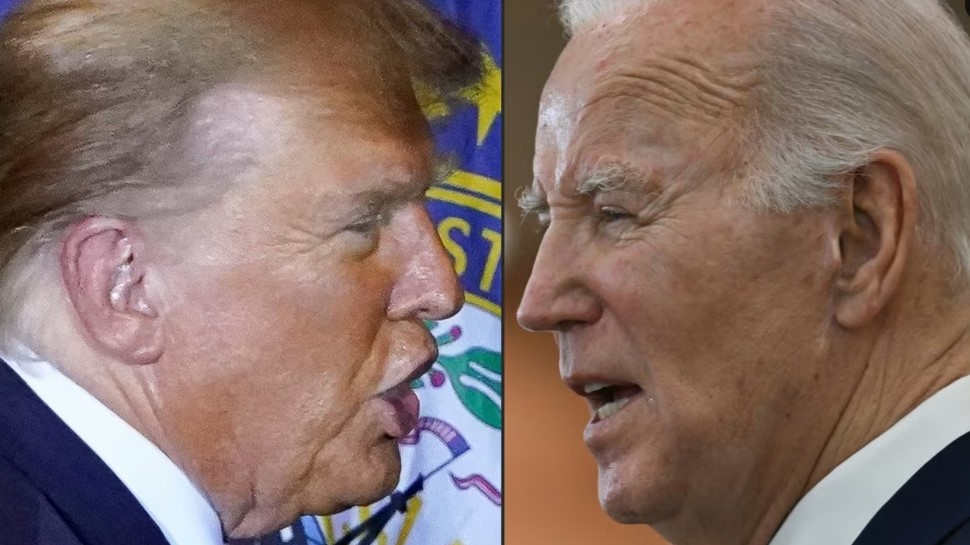WASHINGTON: U.S. President Joe Biden became the presumptive Democratic presidential nominee Tuesday night, and former President Donald Trump secured the delegates needed for the Republican nomination, setting up a November rematch of their 2020 contest.
Both Trump and Biden won primary elections Tuesday in the states of Georgia, Mississippi and Washington, securing enough delegates for a majority in their respective parties.
Biden entered Tuesday 102 delegates short of the 1,968 needed to formally become the presumptive Democratic nominee, while Trump was 137 delegates short of the 1,215 needed to win the Republican nomination.
Biden has faced only nominal opposition to become the Democratic nominee.
Trump, meanwhile, has defeated several Republicans in primary elections, including former U.N. Ambassador Nikki Haley and Florida Governor Ron DeSantis. Other candidates, including Trump’s former vice president, Mike Pence, dropped out months ago for lack of voter support in the face of Trump’s obvious hold on a large base of Republican voters.
Even without their parties’ nominations officially in hand, both candidates are in full campaign mode eight months ahead of the election, taking swipes at each other on every occasion they can.
In his State of the Union address last week, Biden disparaged “my predecessor” 13 times, never mentioning Trump by name, but painting a dystopian vision of what a second Trump presidency would look like.
Trump mocks Biden’s age, 81, even though he is only four years younger.
“I assume he’s going to be the candidate,” Trump said of Biden on CNBC Monday. “I’m his only opponent other than life, life itself.”
Most early national polls show Trump with a slight edge over Biden and in several of the key political battleground states that will likely determine the national outcome in the November 5 balloting. But Trump is also facing an unprecedented four criminal indictments encompassing 91 charges, with one trial set to start March 25.
Whether any of the other cases will be tried before the election is uncertain, but some voters have told pollsters that they will not vote for Trump if he is convicted of any of the charges.
The U.S. does not pick its presidents by the national popular vote but rather in state-by-state elections in each of the 50 states and subsequent voting in the Electoral College.
With a couple of exceptions, the winner of each state’s vote wins all its Electoral College votes, with the largest states holding the most electoral votes and the most sway in the national outcome.
While Trump and Biden have the delegates to be the presumptive nominees, their positions as the Republican and Democratic candidate in the November election will not be official until each party holds its convention. Republicans have their convention set for July, with the Democrats following in August.
VOA








Comment